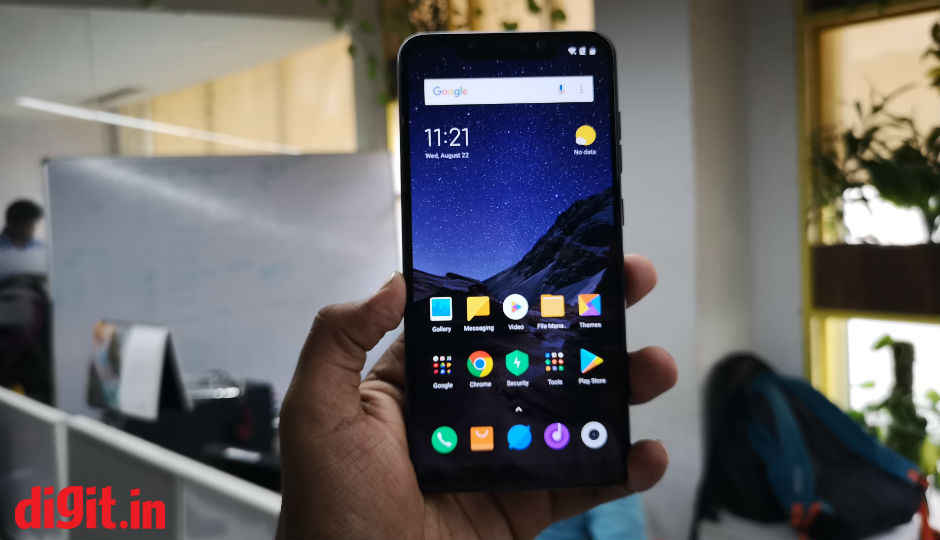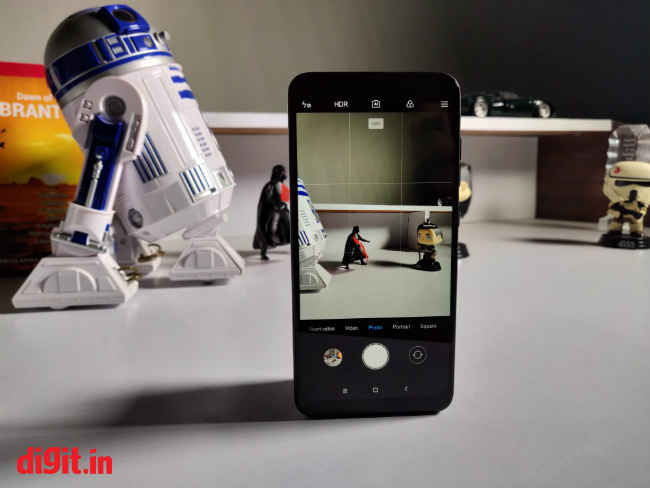Poco F1 by Xiaomi to get Android 9 Pie update in fourth quarter this year, beta testing programme now open
Xiaomi has opened the Poco beta testing programme and those who are interested in purchasing the device have been given time until September 12 to submit their interest in running the beta software on it.

Poco F1, an offering from Xiaomi's new sub-brand Poco, became the world’s cheapest phone with a Snapdragon 845 chipset when it launched at a starting price tag of Rs 20,999. According to our First Impressions, Poco F1 is primarily for those people who are speed enthusiasts but don’t want to spend too much for premium features like glass back and high-end display. Poco cut the cost on these features to bring the effective price down. While Poco F1 looks to be a promising performer, it still falls behind when it comes to a regular roll out of security updates.
 Survey
SurveyAt the event, a company executive specifically announced that Poco F1, which ships with Android Oreo 8.1 out-of-the-box, will get the Android Pie 9.0 OS in the fourth quarter of the year which starts from October. Google is also expected to launch its next-generation of Pixel devices in the same month and generally, the search giant makes the newest Android OS version available to non-Google phones after it launches its phones. Moreover, Xiaomi did not commit to the monthly security patches but said that Poco F1 will get quarterly updates for sure.
Xiaomi was confident while making this claim because the Poco F1 comes under Project Treble, which is essentially Google’s programme to help manufacturers streamline the update process for more timely updates. In theory, the project ensures that the devices under it receive the update for Android Pie at least by the end of the year. Having said that, some brands (apart from Pixel phones) like Essential, Nokia and Sony devices have reportedly started getting the Android Pie update.
The Poco F1 comes with a new UI called “MIUI for Poco”. The OS basically seems more like stock Android because it now has an app drawer. Xiaomi says that MIUI for Poco is faster than its competitors and claims that it delivers up to 28 percent faster app boot up and 22 percent faster animations than other popular OSes. We’ll discuss the performance in our review soon and see how true Xiaomi’s claims hold. In a separate development, the company has started the Poco beta testing programme. Those who want to purchase the device to run the beta software on it have been given time until September 12 to submit their interest.
Poco F1 Specifications
As mentioned, Poco F1 is run on the Qualcomm Snapdragon 845 octa core processor and comes with a Liquid Cooling technology which dissipates the heat from the CPU to other parts. The smartphone sports a 6.18-inch Full HD+ IPS LCD display with a resolution of 19:9. There is a wide notch on the Corning Gorilla Glass protected display which houses an IR lens for face unlock, a lighting sensor, an earpiece, a 20MP camera and a proximity sensor. The company launched the smartphone in three variants: 6GB RAM + 64GB storage for Rs 20,999 and 6GB RAM + 128GB storage for Rs 23,999. The 8GB RAM + 256GB storage version is priced at Rs 28,999 and the special Armoured edition with 8GB RAM + 256GB storage is priced at Rs 29,999.
Further, the phone features a 4,000mAh battery and comes with Quick Charge 3.0 technology. In the camera department, the Poco F1 has a dual camera setup at the back with the primary camera having a 12MP Sony IMX 363 lens with f/1.8 aperture, dual pixel PDAF technology and Real Time AI photography. The secondary camera has a 5MP sensor. On the front, there is a 20MP lens with Pixel binning technology, Portrait Mode and HDR. There are two speakers for the surround effect.
Digit NewsDesk
Digit News Desk writes news stories across a range of topics. Getting you news updates on the latest in the world of tech. View Full Profile
